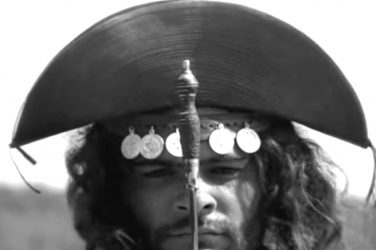Lula is free. On Friday, November 8, former President Lula walked out of prison in Curitiba. His first stop, on Saturday, was the headquarters of the metal workers union in São Bernardo do Campo where he spoke to a cheering crowd for 45 minutes.
The union headquarters is where he held his final stand against the political winds that shifted and blew him into prison in April 2018, as he was caught up in the Lava Jato scandals. He is next planning a tour of the Northeast where the Workers Party (PT) he co-founded is strongest.
Lula has been vindicated, or so it appears that way. Despite (or because of) his criminal conviction and jailing for the past 19 months, he is considered by many to be a hero. It’s unclear if we’ll be seeing more or fewer “Lula Livre” signs. Maybe new signs will be coming that say “Lula Finalmente”?
The vote by the Supreme Court on Thursday, November 7, that freed Lula had nothing to do with his sentencing to 12 years in prison. His release on Friday was not a legal mandate erasing his criminal conviction, and there are still further charges pending against him, which have yet to be decided by the courts.
The Court vote, rather, negates a 2016 law, changing when convicted criminals start serving their prison sentences. The change in the law now permits convicted criminals to remain free until all of their appeals have been exhausted. This means that even if Lula should be convicted on additional charges, he won’t be going to jail anytime soon.
Nobody knows how significantly Lula’s freedom was weighing on the minds of the Supreme Court judges when they voted 6-5 to overturn the 2016 law. However, there’s no question the eleven judges knew a vote to revoke the law that previously assured the jailing of convicted criminals, even if they had appeals pending, would have immediate repercussions for Lula and many others caught in the Lava Jato web.
It’s unlikely that the Brazilian people or even the Supreme Court expected to see Lula released from prison so quickly; nevertheless, once the 6-5 vote was recorded, it took less than 24 hours for Lula’s lawyers to capitalize on the situation.
In the end, the court stood tied at 5-5, and the deciding vote to abolish the previous law was cast by the chief justice, Dias Toffoli, who took his seat on the Supreme Court in 2009 at age 41, one of the youngest judges ever to serve on the highest court. He was appointed by Lula.
The previous law governing mandatory incarceration, which was upheld by the Supreme Court just three years ago, stated that after being convicted, plus losing one appeal, a criminal would be sent to prison. The elimination of this law will have a far-reaching impact, affecting as many as 5,000 currently incarcerated criminals. Before 2016, the law stood as it does now, a convicted criminal is free while any of his appeals are still pending in the courts.
There are three lessons to be learned from this controversial Supreme Court decision and Lula’s release:
One: We are faced with the fickle nature of Brazil’s Supreme Court. The fact that the court reversed itself from its own determination in 2016 shows its judgment is political rather than based on an analysis of constitutional law.
Two: The tally of a 6-5 decision illustrates the Supreme Court was acutely aware of the weight of their decision and how it will be read by the citizens and the rest of the world. Only a ruling with powerful reverberations is going to result in an equally divided vote.
The 2016 law, which mandated imprisonment after losing one appeal, has been critical in the pursuit of dozens of white-collar criminals prosecuted in the Lava Jato scandal.
For the past three years, when white-collar criminals were convicted in court, despite the efforts of their expensive lawyers, they knew there was a strong likelihood they were going to prison.
The fear of prison is precisely what’s needed to convince wealthy, powerful men to negotiate with prosecutors. It was this 2016 law, as well as another recent law that permits plea bargaining (delação premiada), that was responsible for putting wealthy businessmen and politicians in prison.
Wealthy men can’t afford the newsworthy shame of going to prison, not to mention the financial destruction that accompanies billionaires who end up there, for instance Marcelo Odebrecht and Eike Batista.
However, with Thursday’s Supreme Court ruling, these men will no longer be going to prison. Knowing that wealth can buy the lawyerly power to file endless appeals, prosecutors will lose their leverage for extracting confessions, especially in a legal system where courts are backlogged with millions of cases.
As the Brazilian court system doesn’t recognize precedence, white-collar criminals with the financial means to keep their legal team on retainer for years can continue to file appeals, making it possible they never see the inside of a prison.
The 2016 law that required imprisonment after losing one appeal was passed by Congress during the PT era, as was the legislation that created plea bargains. While there are some Brazilians who oppose plea bargains, it’s a prosecutor’s strongest weapon to fight while-collar crime and one that has been used in the U.S. for more than 60 years.
It is ironic that the two laws most responsible for putting powerful men like Lula into prison were both passed during the years PT was in power in Brasília. It’s important to note that these two laws are a clear indication that PT, led by Lula, provided a great leap forward in Brazil’s efforts to escape its reputation as a haven for impunity of its most powerful citizens.
As a convicted criminal today, Lula is not permitted to hold political office. This is a result of a third anti-corruption law passed during the PT administration designed to keep dirty politicians out of power.
Lula and his supporters will not allow Brazilians to forget how much the country benefited from PT’s efforts. Not only did these anti-corruption laws put Brazil’s elite behind bars for the first time in its history, but PT did more to improve the lives of the poor and working class in Brazil than any political party in the country’s history.
Programs like Bolsa Familia, which encouraged children to get vaccinated, and the expansion of the federal university system will have positive effects on the country for generations to come. Additionally, PT was able to reduce deforestation in the Amazon region for the first time.
Today, President Bolsonaro’s team is pushing ahead with economic initiatives that negate many of PT’s progressive programs. While some of Economic Minister Paulo Guedes’s efforts to trim government bloating are necessary, such as the restructuring of the retirement system, many of the current administration’s plans are not beneficial to the Brazilian people.
Tens of thousands of Brazilians have slipped back into extreme poverty with recent reductions to the Bolsa Familia set of programs. Even worse, the entire world is suffering as the current administration promotes the destruction of the Amazon forests in favor of soy farming, cattle ranching, and sugar cane production.
Lesson number three from the week’s events can be gleaned from a quote by the American writer F. Scott Fitzgerald who once said, “The test of a first-rate intelligence is the ability to hold two opposed ideas in mind at the same time and still retain the ability to function.”
The intellectual test suggested by Fitzgerald is also a prescription for a healthy democracy. Whether one believes Lula is a god or a devil, it must be recognized that a vibrant democracy thrives on debate. Everyone’s voice deserves to be heard including the voices in opposition.
Freeing Lula from prison is the sign of a strong democracy. He remains the figurehead leader of the PT, and as such, his leftist voice needs to be heard to balance the right-wing populist rhetoric of the Bolsonaro team.
When opposing voices are silenced, when newspapers like Folha De S. Paulo are attacked, democracy suffers. Even those who voted for Bolsonaro last October must realize that authoritarian leaders can slip over the line and drag the country into supporting the suppression of democracy.
Brazilians need look no further than Cuba or Venezuela or Bolivia to witness what happens when authoritarian leaders, on the left or the right, are granted too much power. Repression of the press and everyday freedom is a slippery slope into utter chaos (Venezuela) and populace uprisings (Bolivia).
What remains to be seen is whether Lula can lead PT on a compromising and productive path. Brazil continues to face tremendous challenges, which can only be tackled with strong leadership from Brasília.
Can the federal government find a way to lower unemployment without destroying the rights of workers? Can the government protect the environment without inhibiting the productivity of agribusiness?
Can the government revise the byzantine tax laws, making it easier to open and operate businesses for Brazilians and foreign companies? Can the government restructure the legal system to end decades of delays from millions of backlogged cases?
Finally, can the government continue the Lava Jato investigations? While the tactics of Sérgio Moro have come under scrutiny, nobody should be questioning the value of the Lava Jato’s revelations.
Brazil cannot afford to imprison its poor people, tens of thousands of whom are currently in jail awaiting their first trial and have never been convicted of any crime, while at the same time allow its wealthy citizens to walk free despite having been convicted. The rules of incarceration should never favor the wealthy, just as workers’ rights laws should never favor corporations.
Let’s not forget the unrecoverable and unforgettable damage that Lava Jato has done to Brazil’s economy, not to mention the country’s reputation for corruption on the world stage.
Many convicted Lava Jato criminals are now going to be freed because of the Supreme Court’s vote.
What will stop these white-collar criminals from spending the money they’ve stolen from the Brazilian people, like the employees of Petrobras? Petrobras and Caixa Bank pensioners, among others, are now losing 10 – 30 percent of their retirement savings every month because of investment losses to their pension funds. These funds, controlled by the government, were manipulated and pilfered during the Lava Jato days.
Do Brazilians want to be known as a society that believes putting a man in jail for stealing a loaf of bread to feed his starving family is more important than imprisoning a white-collar criminal who has stolen tens of millions of reais?
In conclusion, having a vibrant leftist opposition in Brazil, which will stand up for workers’ rights and protect the environment, is a positive development; and Lula is the most powerful voice on the left.
However, the Supreme Court’s decision to overturn the 2016 law, which had for the first time put white-collar criminals in prison, was a mistake.
B. Michael Rubin is an American writer living in Brazil.






